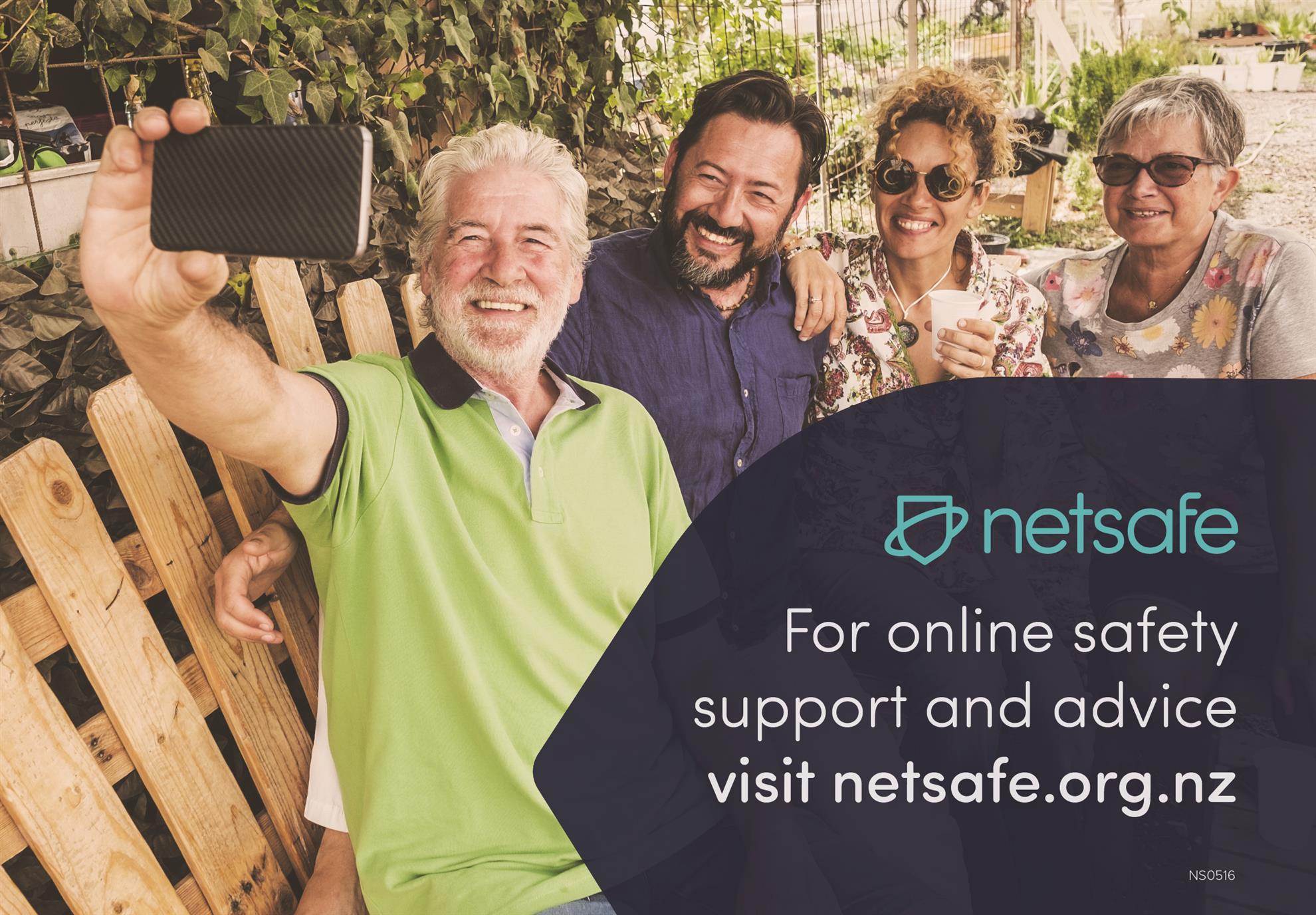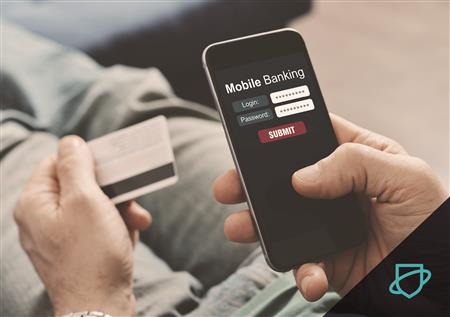According to Wikipedia, the Commodore VIC-20 was the computer of the future when it was released in 1982. I was 7 years old when my dad came home with one - my sisters and I thought we were the bee’s knees. We used our old TV as its screen and spent hours entering code to play games.
If you fast forward almost 40 years, that cumbersome computer connected to our old TV has been replaced by fancy gadgets kept in our pockets. They allow us to connect, create, collaborate, consume and communicate with few limitations. And gone are the days of the painful ‘dial-up’ process – making sure no-one was using the landline first and then waiting forever to connect. Now we use our thumb print to open our phones, messages come directly to our wrist watch and our devices keep us continuously connected.
While excitement abounds with unfettered access to information and online opportunities (including access to 24/7 shopping!), the more time we spend online, the more chance we have of experiencing risk and challenge. In the ‘old days’ we didn’t have to worry about issues online, but now it’s important that anyone embracing online opportunities also adopts safe behaviours to reduce their risk.

For those of us who aren’t used to the speed and connectivity of today’s digital technology, or who haven’t grown up with it, the online space can seem a crazy and lawless place. To help you enjoy and maximise your time online, Netsafe has gathered a few tips and tricks.
- Put a lock on it
All devices have the option of using a passcode or password. Ensure you have a strong password or passcode on each device – and try not to share this with anyone. Your device contains a lot of personal content including private information and photos so it’s important you protect it as much as you can.
- Adopt powerful passwords
We need passwords for every online account we have – whether it’s for online banking, shopping, email or watching streamed TV. While it’s easy to use the same password for each account – I have a hard time remembering what day it is let alone passwords for my many online accounts – I know it is important to use strong and unique passwords for each one. If someone manages to uncover your password for one account, they won’t be able to access any others.
If you are worried about remembering which password goes with which account, there are password management options available to help.
When creating passwords try to avoid using information that is easy for someone to guess like pet or family names or your birthday. Passcodes that involve phrases are a smart approach.
Remember not to share your passwords with anyone and that legitimate organisations will never ask for passwords to online accounts. Read this advice for more information.
- Use two-factor authentication
Two-factor authentication, 2FA, two step verification, multi factor authentication and login approvals – it goes by a few different names, but no matter what it’s called, it’s important to use on your online accounts. It provides an additional layer of protection for you and is an extra step on top of your password that makes it harder for others to access your accounts. There are also apps available that will generate an authentication number for you to enter. Learn more about two-factor authentication.
- Keeping things private
Social media is amazing. It allows you to stay connected to friends, family and places – and to find like-minded people who share similar interests and passions. The purpose of social media is to share content so when you sign up, your new account has limited privacy settings in place. Luckily you can adjust those settings to suit your needs so it is worth taking some time to look at these.
Be vigilant when adding or accepting new ‘friends’ or connections online - sometimes people are not who they appear to be. Also think carefully about what you share and who you share things with, and remember that as soon as you press ‘send’ or ‘post’ you effectively lose control of that content. Always make sure it is something you are happy to have on-shared in other forums.
- Shopping online
I come from a family who likes to shop. We love browsing book shops, hardware shops and department stores, and as a teacher, nothing beats a good stationery shop. The ability to now peruse these places at my leisure and in my pyjamas is like a dream come true. It’s easy and convenient however there are a few things to watch out for when you’re putting that much needed item into your online shopping cart.
Think carefully about who you are buying from and what kind of information you’re providing. Make sure any account you set up is secure, look out for the padlock symbol in the browser window and only enter payment details on a website that has an ‘s’ on ‘https://’ – this means that your information will be encrypted. If you are purchasing from somewhere new, it is worth reading this information on our website first.
- Scams, scams and more scams
Throughout history, there have been people who have preyed upon other people’s kind hearts, concerns and (misplaced) trust. The online world provides those people with yet another place whereby they can gain from others’ lack of knowledge or confidence.
There are many types of scams circulating, and I am sure we have all been the recipient at one time. It happens to all of us, whether it’s the scam call from a well-known telco offering to fix your computer if you can give them remote access, a supermarket chain saying you have won a $500 gift card or an international caller who confuses you with questions, resulting in you sharing personal identifying information.
Here are a few quick tips:
- Think twice if you are contacted unexpectedly
- No legitimate organisation will ever ask for your account password
- Watch out for unusual requests for payment
- Be wary of anyone pressuring you to share personal information
Netsafe can’t open investigations or track scammers, but we can offer support and advice if you have lost money or think you could be about to be scammed. Follow this link for more scam information
- Connect to Netsafe
Netsafe offers a free confidential service for people of all ages. Whether you’re dealing with online bullying, an online request that looks suspicious or you want advice about online activities, we can help. Call toll-free on 0508 638 723, email help@netsafe.org.nz or text ‘Netsafe’ to 4282 for assistance.
The website, netsafe.org.nz, provides useful information, tips and self-help guides about a range of online safety issues including bullying, harassment and scams. You can also subscribe to the monthly newsletter at netsafe.org.nz/newsletter or follow ‘NetsafeNZ’ on Facebook, Twitter or Instagram to keep up with the latest in online safety news, advice and tips.
Hopefully this advice empowers you to take advantage of the many online opportunities available to Kiwis. Sometimes, however, even with all the best precautions in place, problems can arise. If you do need support, contact Netsafe for help.
About Pauline Spence
Pauline is one of Netsafe’s education advisors. She regularly travels the country explaining the online opportunities and challenges to educators, parents and communities. In her downtime, Pauline likes to shop online, bake, travel home to Dunedin and dream (wishfully) of one day being a travel writer.
About Netsafe
Netsafe is one of the world’s leading online safety organisations. We are an independent non-profit that provides reactive and proactive online safety advice, support and education to everyone in New Zealand.
By taking a technology-positive stance and using a pragmatic approach, we work to achieve the best outcomes for users. We are available to help with any online challenge seven days a week. Find out more about Netsafe’s service and helpful resources at netsafe.org.nz
